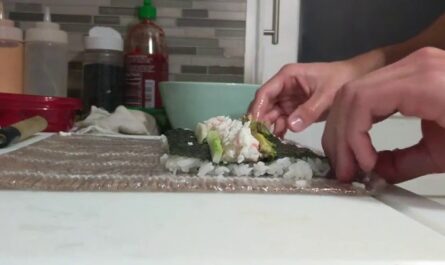Chicken tenders are a beloved dish for many, given their versatility and the myriad of ways they can be prepared. One popular method is adding BBQ sauce while baking, which elevates the flavors tremendously. But when do you add BBQ sauce to chicken tenders to bake? The timing of applying the sauce can affect the texture, taste, and overall experience of your dish. This article delves into this culinary question to ensure your BBQ chicken tenders are a delightful treat.
When it comes to baking tender and flavorful chicken tenders, knowing when to add the sauce is crucial. The debate about whether to add the sauce before baking or midway through cooking is ongoing. Here, we provide insights and expert tips on optimizing your baking process. Whether its an ordinary weekday dinner or a special occasion, these guidelines will help make your chicken tenders stand out.

Lets Get Familiar with BBQ Sauce Basics
Understanding the components of BBQ sauce can aid in making an informed decision about its application. Typically, BBQ sauce includes ingredients like tomatoes, vinegar, sweeteners, and spices, each contributing to a unique taste profile. Most commercial BBQ sauces have high sugar content, leading to caramelization or burning if cooked too long at high temperatures [Once Upon A Chef’s BBQ Sauce Recipe](https://www.onceuponachef.com/recipes/homemade-bbq-sauce.html) (nofollow). This factor makes it essential to be strategic about when you add the sauce.
The Perfect Timing: Adding Sauce Before Baking
One approach is to marinate the chicken tenders with BBQ sauce before placing them in the oven. This method allows the sauce to seep into the meat, resulting in flavorful and moist tenders. Pre-baking marination is ideal if you prefer a more intense BBQ flavor infused throughout the meat.
Pros of Pre-Baking Saucing
- Deep flavor penetration into the chicken tenders.
- Moist and tender texture due to marination.
- Less work during the baking process.
Cons of Pre-Baking Saucing
- Possible burning or caramelization during baking due to sugar in the sauce.
- A less pronounced BBQ layer on the outside.
Alternative Approach: Adding Sauce Midway
Alternatively, waiting until the chicken is halfway cooked before applying BBQ sauce can yield a delightful result. This method allows the chicken to cook through without the risk of burning the sugar content in the sauce.
Pros of Midway Saucing
- Enhanced exterior texture with a caramelized layer.
- Balanced flavor that doesnt overtake the natural chicken taste.
- Reduced risk of burning.
Cons of Midway Saucing
- Less penetration of BBQ flavor into the meat.
- Requires precise timing for ideal results.
Final Sizzling Adding Sauce towards the End
A safe choice for many cooks is to add the sauce towards the final 5-10 minutes of baking. This method ensures your BBQ sauce doesnt overpower the meat or burn during the process, giving a nice glaze thats both aesthetically pleasing and delicious.
Pros of Final Sizzling
- Visual appeal with a glossy BBQ exterior.
- Maximum caramelization without burning.
- Balanced flavor and texture.
Cons of Final Sizzling
- Limited flavor penetration into the chicken tenders.
- May require basting for even sauce distribution.
Practical Tips for Baking BBQ Chicken Tenders
- Choose the Right BBQ Sauce: Select a sauce that complements the chicken’s natural flavor, considering spiciness and sweetness levels.
- Adjust Cooking Time: Cooking times may vary based on sauce application method, so keep an eye on your tenders to avoid overcooking.
- Monitor Temperature: Ensure your oven is at an optimal temperature to prevent burning the sauce early on.
Additional Variations to Try
Why not experiment with different types of BBQ sauces, such as honey mustard or spicy, for a new twist on the classic tender? Adding a sprinkle of freshly chopped herbs like thyme or rosemary can also elevate your dish.
Recommended Oven Settings
Preheat your oven to 350F (180C) for slow, even cooking. Adjust to 375F (190C) for a crispier exterior.
Benefits of Using Homemade BBQ Sauce
Crafting your own BBQ sauce allows you to control the sweetness and acidity levels, making homemade sauces potentially healthier than store-bought variations. For a starting recipe, check out [Feel Good Foodie’s BBQ Sauce](https://feelgoodfoodie.net/recipe/how-to-make-bbq-sauce/) (nofollow).
Common Mistakes to Avoid
- Applying sauce too early without monitoring can lead to burning.
- Not considering the sugar content of the sauce, which can alter taste and texture.
- Overbaking the tenders, leading to dryness.
Pairing Suggestions and Serving Ideas
Consider pairing your BBQ chicken tenders with coleslaw, corn on the cob, or a refreshing cucumber salad. These sides complement the rich flavors of BBQ without overpowering them.
Storing and Reusing Leftover BBQ Chicken
- Store leftovers in an airtight container for up to three days in the refrigerator.
- Reheat using a microwave or oven to maintain tenderness.
- Use leftovers in wraps, sandwiches, or salads for a creative twist on subsequent meals.

FAQs
- Should I cover chicken tenders while baking?
- Covering is not necessary unless you find your tenders are drying out. Baking uncovered helps achieve a crust.
- How can I prevent BBQ sauce from burning?
- How spicy should the BBQ sauce be?
- This depends on personal preference. Mild sauces cater to broader palates, while spicy sauces can be a hit for a flavor-packed experience.
As an Amazon Associate, I earn from qualifying purchases.


